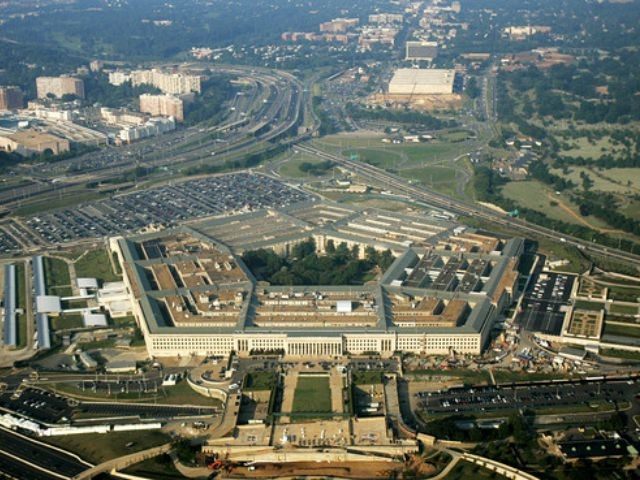A new Pentagon legal guide compares war correspondents to enemy spies and allows reporters to be treated as “unprivileged belligerents.”
The thick new legal guide was produced earlier this summer, condemned now by the editorial board of the New York Times, which is calling for the immediate repeal of “guidelines on the treatment of journalists covering armed conflicts that would make their work more dangerous, cumbersome and subject to censorship.”
Journalists, the manual says, are generally regarded as civilians, but may in some instances be deemed “unprivileged belligerents,” a legal term that applies to fighters that are afforded fewer protections than the declared combatants in a war. In some instances, the document says, “the relaying of information (such as providing information of immediate use in combat operations) could constitute taking a direct part in hostilities.”
The manual warns that “Reporting on military operations can be very similar to collecting intelligence or even spying,” so it calls on journalists to “act openly and with the permission of relevant authorities.” It says that governments “may need to censor journalists’ work or take other security measures so that journalists do not reveal sensitive information to the enemy.”
The example of journalists becoming “unprivileged belligerents” given to the Times by a Pentagon official was deemed “preposterous” by the editors because it involved assassins posing as journalists to kill an Afghan military commander in 2001, not actual journalists who suddenly decided to produce weapons and become belligerents.
The editorial warns that authoritarian regimes could point to these Pentagon guidelines and defend their own crackdowns on dissidents and nosy reporters by claiming they are following the same principles.
Naturally, this fiery editorial ends with a passive-aggressive plea to the Times’ beloved President Obama to denounce the Pentagon journalism guidelines as the work of rogue underlings and slap a band-aid on this boo-boo, pronto:
A spokesman for the National Security Council declined to say whether White House officials contributed to or signed off on the manual. Astonishingly, the official pointed to a line in the preface, which says it does not necessarily reflect the views of the “U.S. government as a whole.”
That inane disclaimer won’t stop commanders from pointing to the manual when they might find it convenient to silence the press. The White House should call on Secretary of Defense Ashton Carter to revise this section, which so clearly runs contrary to American law and principles.
AFP News reports that a Pentagon spokesman insisted the manual is “not policy” and “not directive in nature,” meaning that it does not provide “authorization for any person to take any particular action related to journalists or anyone else.”
International Business Times notes the NYT is not alone in feeling otherwise, as the guidelines have been condemned by the Committee to Protect Journalists, while Reporters Without Borders has warned of a “decline on all fronts” of press freedom, scoring the United States 49th out of 180 countries in press freedom.
Spare this much sympathy for the Pentagon, at least: information has always been crucial to battlefield success, but these days information flows faster than ever, across unconventional battlefields that stretch across the main streets of small towns. It’s harder than ever to manage the risks involved in wartime journalism, for both journalists and war fighters.

COMMENTS
Please let us know if you're having issues with commenting.